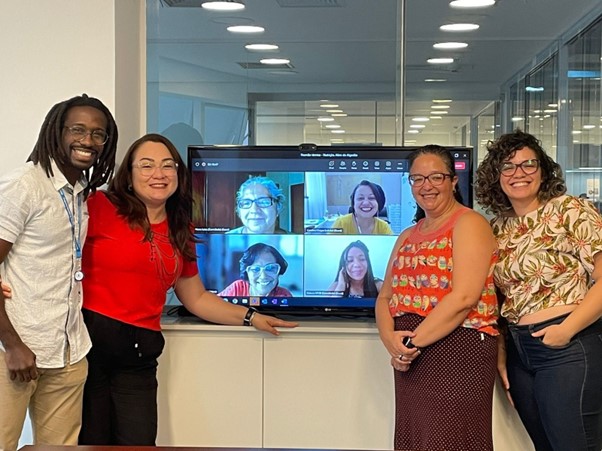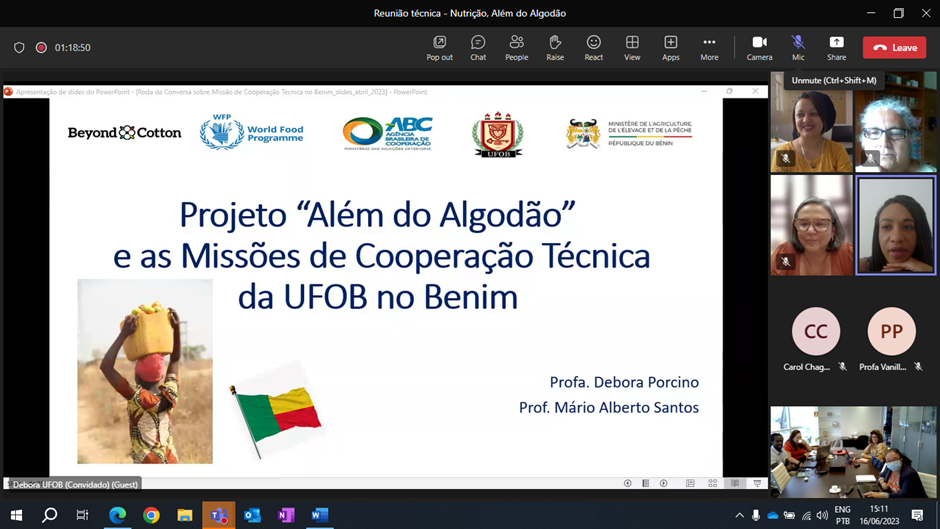
On Friday, June 16, the first technical meeting was held with all the nutrition teachers from the Brazilian cooperating institutions (IBC, in Portuguese) who work in the nutrition activities of the Beyond Cotton project. The meeting, which was held in a hybrid format, had the objectives of presenting the most recently developed activities in the countries; sharing the results and nutrition activities implemented in the country project; exchanging successful experiences; and sharing methodologies to support the continuity of the activities.
The meeting was organized and led by the project team of the WFP Centre of Excellence against Hunger in Brazil, Eliene Sousa, Maria Luiza Silva, Osiyallê Rodrigues and Thaynara Dias. During the meeting, the lecturers pointed out the process of formation of the projects in the countries, the project adaptations after the diagnosis and identified differences in the implementation of projects in each country.
The meeting was attended by the technical educators representing the countries where the project operates: Mozambique, Benin and Tanzania. From Mozambique, were present Carolina Chagas, project coordinator for IBC, and Amábela Cordeiro, teachers of the Federal University of Lavras (UFLA, in Portuguese) and Federal Institut Fluminense (IFF, in Portuguese), respectively. Debora Porcino, lecturer at the Federal University of Oeste Baiano (UFOB, in Portuguese) and coordinator of the IBC project in Benin; and Vanille Pessoa, lecturer at the Federal University of Campina Grande (UFCG, in Portuguese) and coordinator of the IBC project in Tanzania were also present.
One of the main challenges to improving food and nutrition between the populations participating in the project is the monotony of food, which is a common point in the group of participating countries. In addition, although there is fruit production in some regions, fruit consumption among beneficiaries is not constant, and thus the consumption of micronutrient-rich foods is scarce, jeopardising the health of farmers and schoolchildren. Other challenges that are present in the countries are water insecurity, and hygiene and food preservation.

On the other hand, the teachers identified that nutrition has a relevant potential to improve the living conditions of the populations assisted by the Beyond Cotton project, given the different areas of activity of the subject, such as food and nutrition education; food and nutrition security; and the appreciation of local foods and habits, in detriment to the consumption of ultra-processed foods. During the meeting, the experts discussed the importance of holding face-to-face meetings and sharing technical materials to implement actions.
This meeting was the first of a series that aims to strengthen technical knowledge in the area of nutrition to mitigate the obstacles experienced by farmers and schools, under the Beyond Cotton Project.
The Beyond Cotton Project is a partnership between the World Food Programme (WFP) Centre of Excellence against Hunger and the Brazilian Cooperation Agency (ABC) and is financed by the Brazilian Cotton Institute. Learn more.




